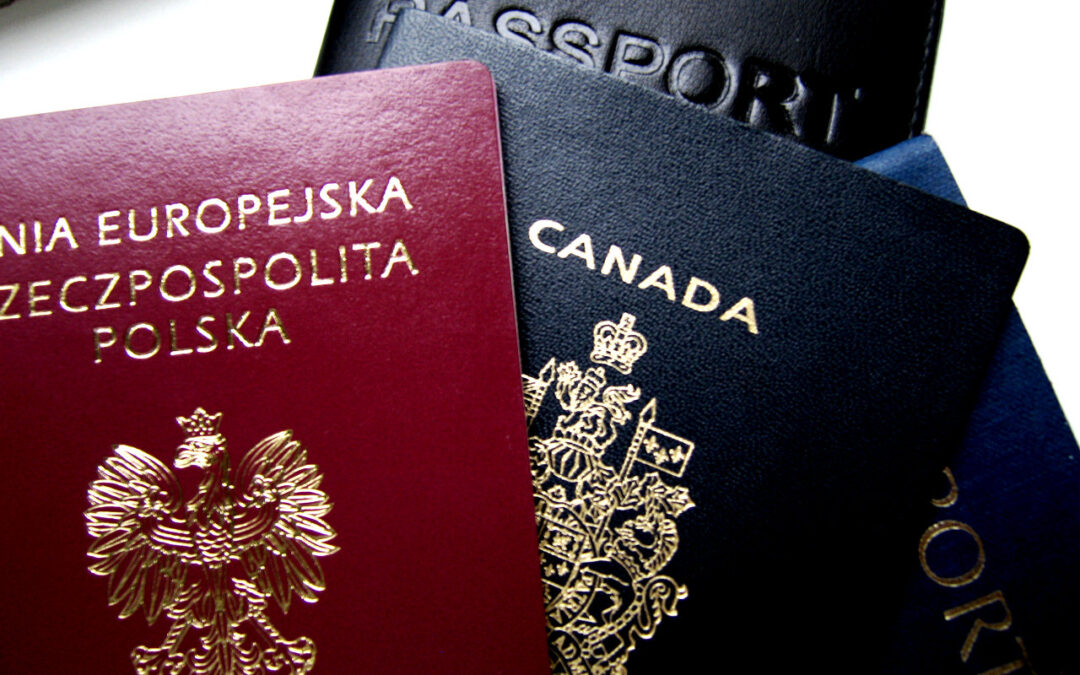A transgender person who underwent a sex reassignment procedure abroad has the right to receive a Polish passport recognising her new legal identity, Poland’s Supreme Administrative Court has ruled.
The judgement, announced yesterday by human rights commissioner Adam Bodnar, concerned a Polish citizen born in Canada who was legally recognised as a woman there after a sex reassignment procedure. The Polish authorities had refused to update her documents to reflect the change, reports Rzeczpospolita.
Bodnar hailed the “important ruling”, confirming that transcription of a foreign birth certificate of a transgender person with Polish citizenship, a requirement for issuing a passport, does not violate Polish law.
NSA w ważnym wyroku potwierdził, że transkrypcja zagranicznego aktu urodzenia osoby transpłciowej z polskim obywatelstwem do akt stanu cywilnego, niezbędna dla wydania paszportu, nie jest sprzeczna z podstawowymi zasadami polskiego porządku prawnego https://t.co/mjHWcLaW2J
— Adam Bodnar (@Adbodnar) January 12, 2021
According to Canadian law, the sex reassignment had been recorded in the woman’s birth certificate, with her new name and gender entered in parentheses next to the old ones.
Before the expiry of her Polish passport, which had been issued when she was child, she applied to the registry office in Poland for a transcription of the amended birth certificate.
This application was refused by the head of the registry office, on the basis that it threatened Poland’s “legal order” and that the data in the Canadian birth certificate were not clear enough to make an accurate and literal transcription.
This decision was initially upheld by the provincial governor, a government appointee, but then revoked by a regional administrative court, reports Polsat.
The governor, backed by the national public prosecutor, then appealed to the Supreme Administrative Court, the highest body responsible for assessing administrative cases. The human rights commissioner, meanwhile, who had been approached for help by the person at the centre of the wrangle, moved to dismiss the appeal.
Bodnar argued that the transcription had been refused without due consideration of the consequences and without indication of threats to the legal order. Although the woman was a Polish citizen, he wrote, the refusal had in effect denied her the right to Polish identification documents and would prevent her from getting them, which is a violation of her rights to citizenship and the entitlements it brings.
“The practice established in Poland of gender reassignment by a transgender person confirms that taking change of personal data into account after reassignment of gender is in accordance with the Polish legal order,” he wrote, adding that there was “no basis” to refuse the transcription.
In its judgement dismissing the provincial governor’s appeal, the Supreme Administrative Court ruled that transcription of a birth certificate reflecting reassigned sex and the resultant change in name does not contravene Polish law, reports Rzeczpospolita.
Since feeling that one belongs to a given sex is regarded as a protected personal right, a person who not only feels this but has also had reassignment surgery should not be forced to play a social role conflicting with the gender recorded in the birth certificate, the court added.
It is possible for transgender people to legally change their name and gender identity in Poland, but the process takes years and can be blocked or slowed down by their parents. In 2015, parliament passed a law to simplify the process, but it was vetoed by the president, Andrzej Duda.
A 2019 report by the human rights commissioner recommended that gender reassignment should be regulated to implement at least the standard formulated in the 2015 law and in compliance with international standards to make the procedure faster and more accessible as well as streamlining the process of changing documents.
Poland is the worst country in the European Union for LGBT people, according to last year’s “Rainbow Map”, which takes account of both the legal situation and also the “social climate” that they face.
Main image credit: Dariusz Boron/Flickr (under CC BY-NC-ND 2.0)

Ben Koschalka is a translator, lecturer, and senior editor at Notes from Poland. Originally from Britain, he has lived in Kraków since 2005.




















